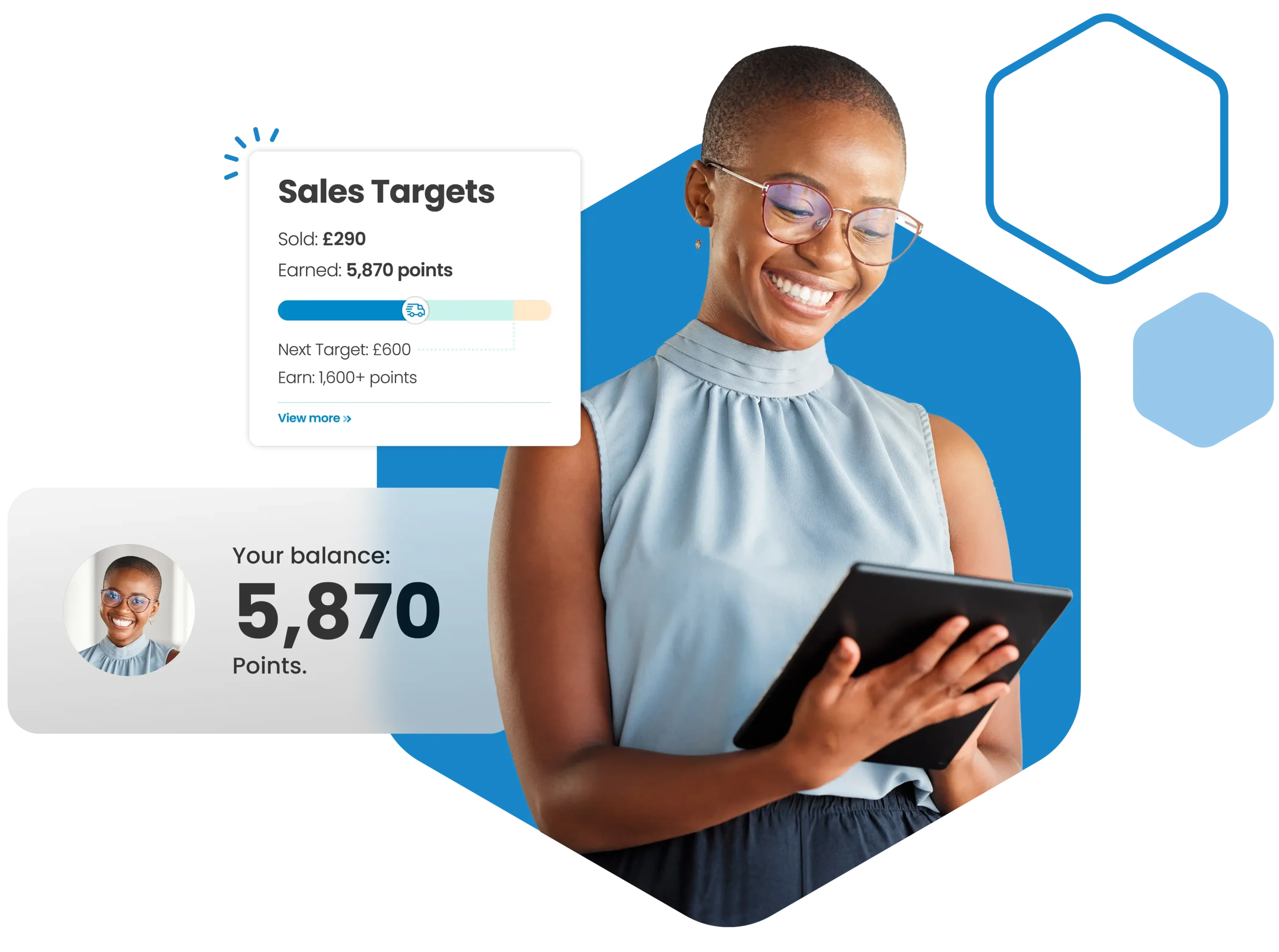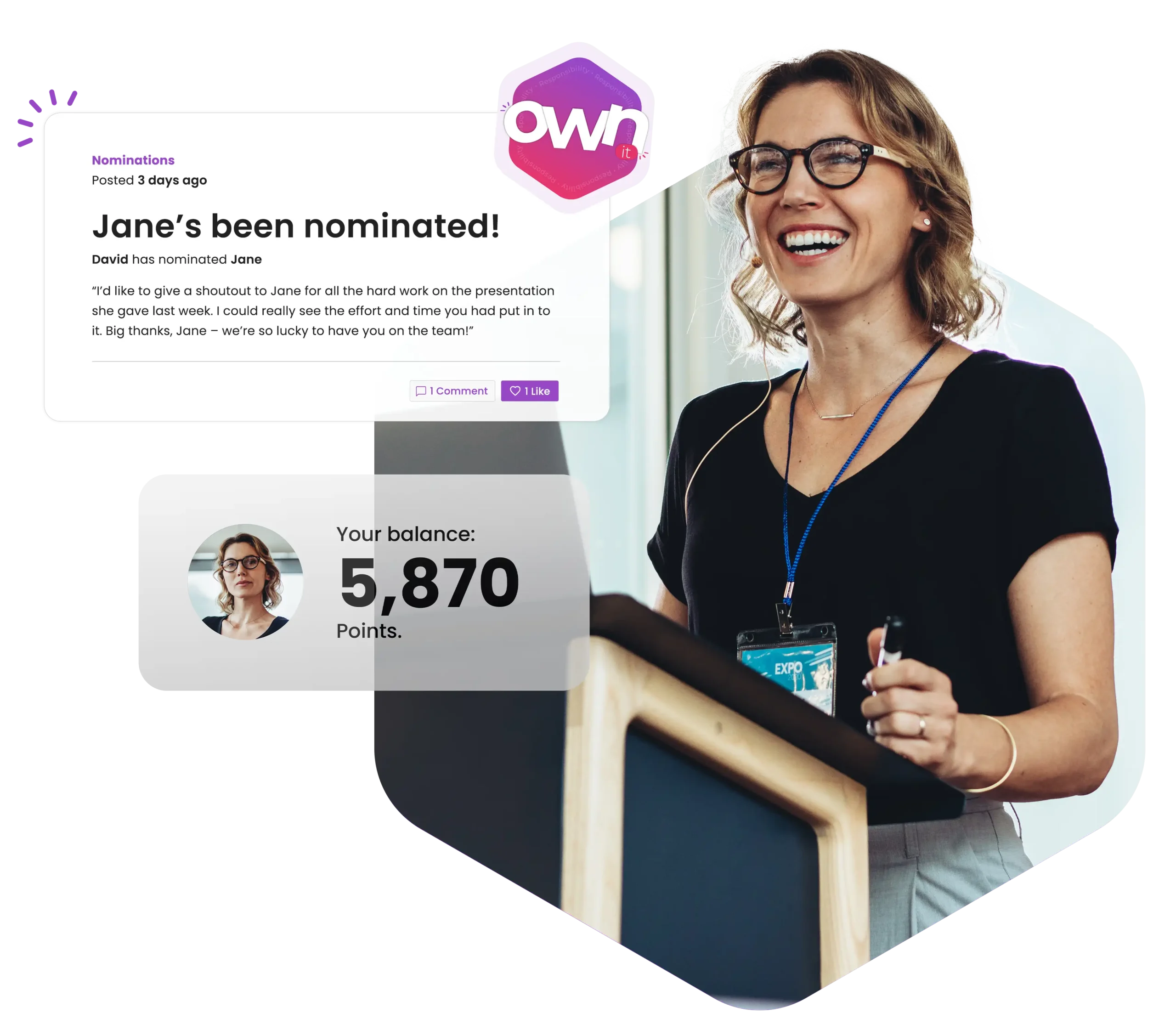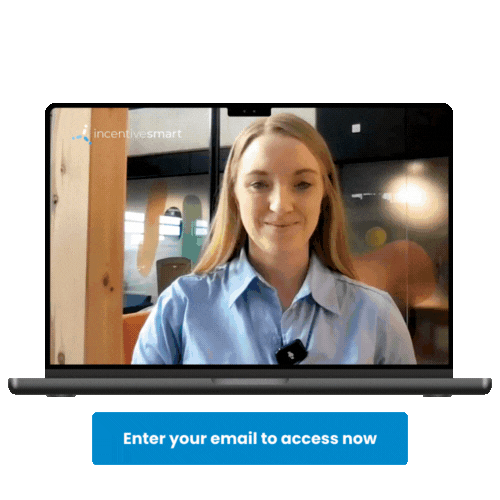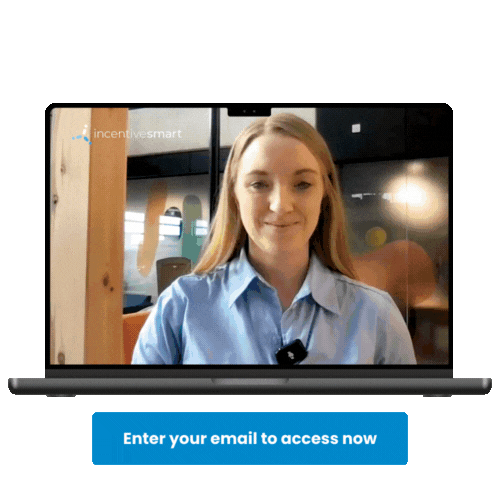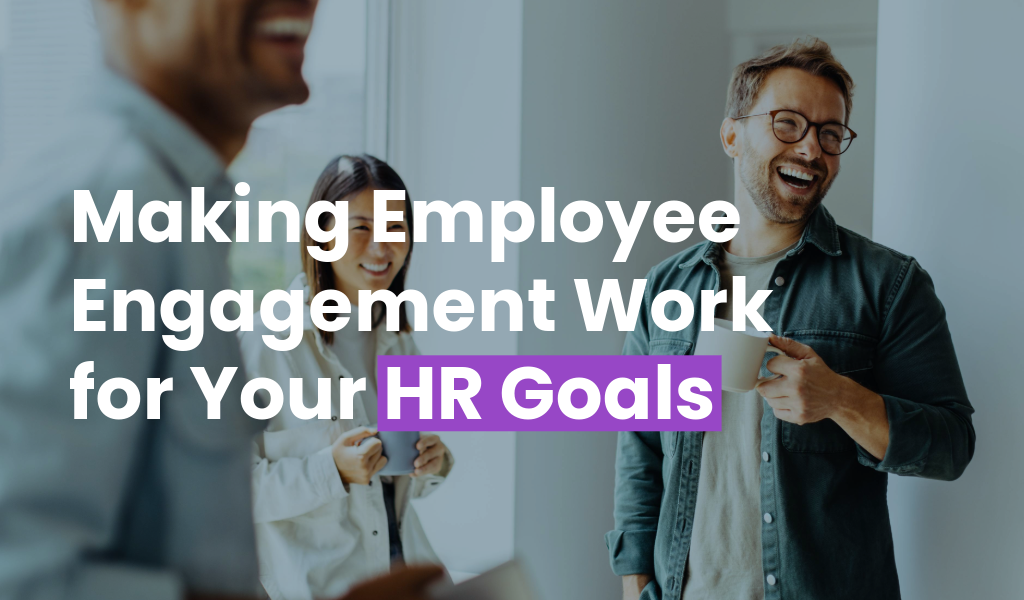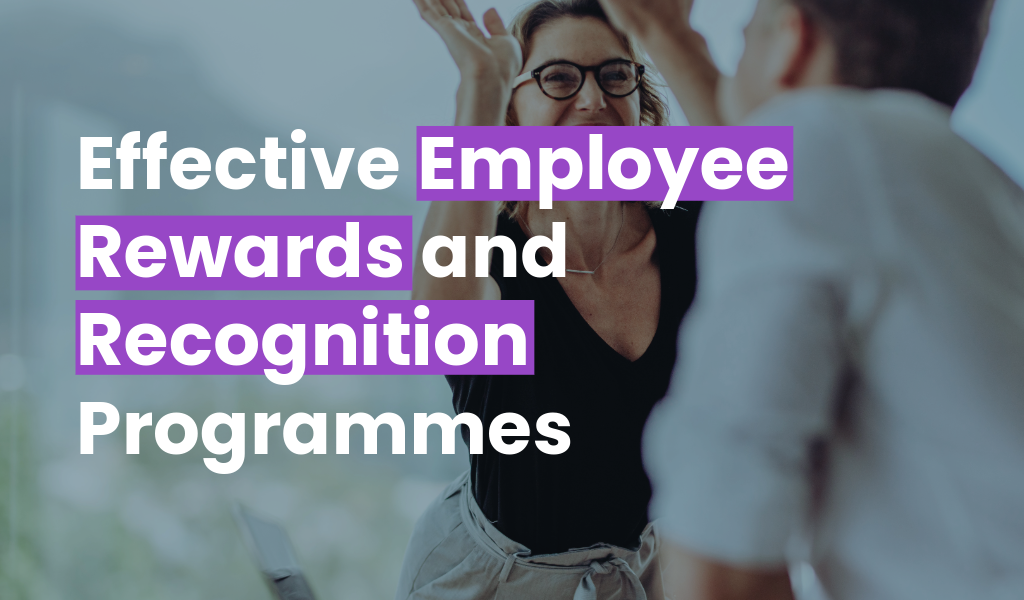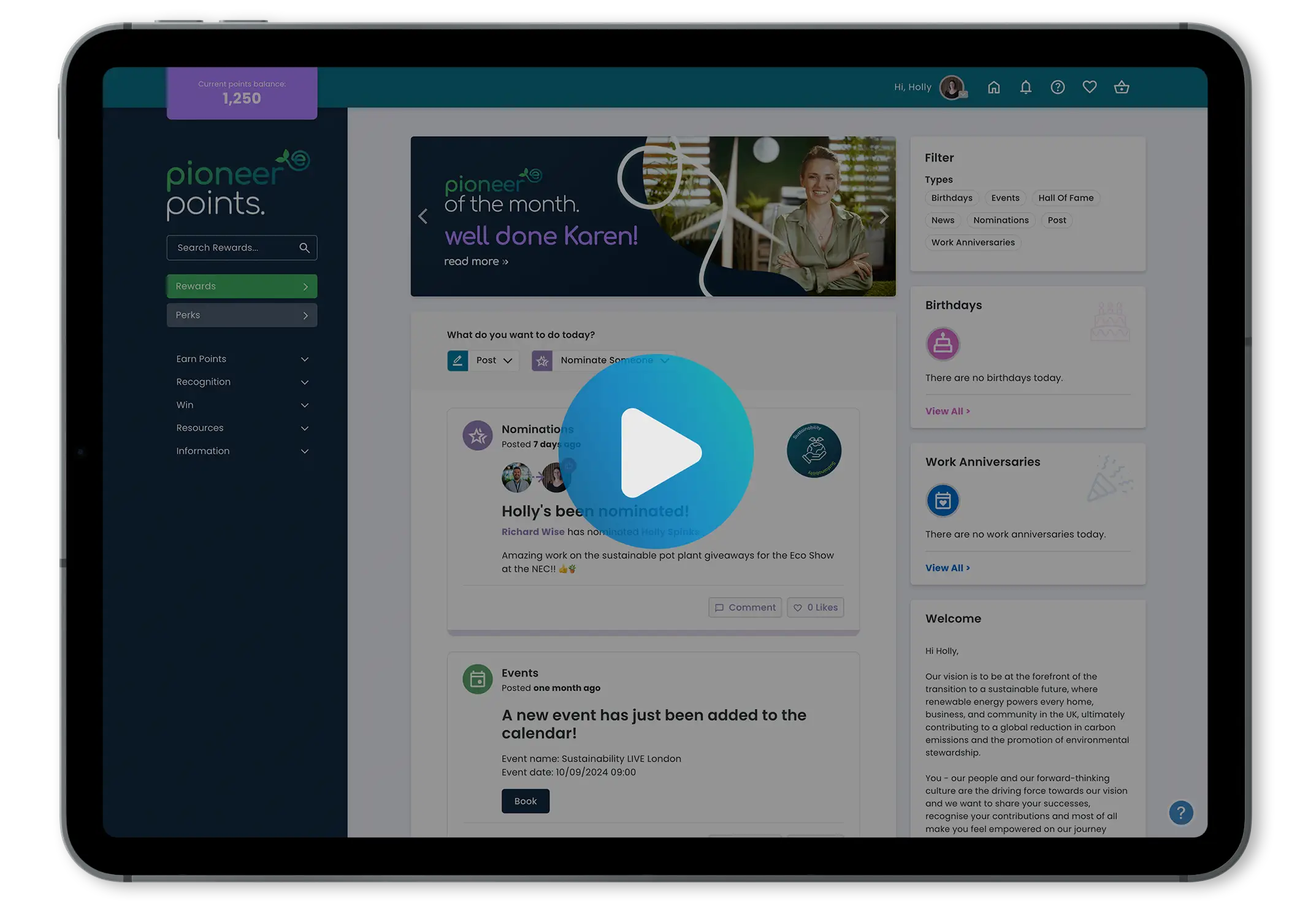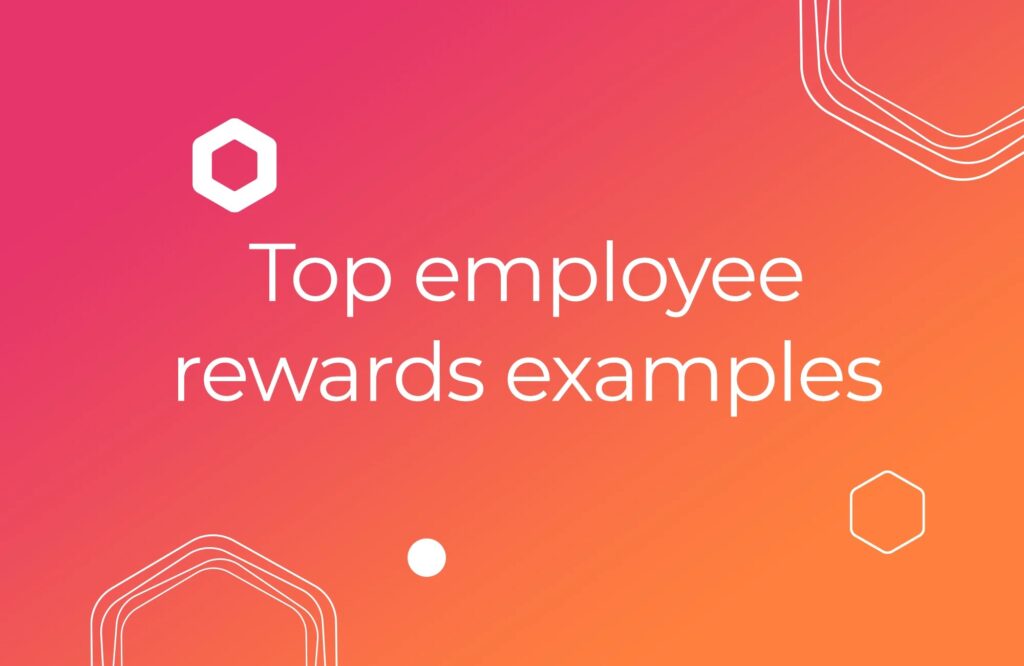


In the dynamic landscape of the modern workplace, the significance of a motivated and engaged team cannot be overstated. As organisations strive to achieve their goals and stay ahead in competitive markets, they increasingly recognise the pivotal role that employees play in driving growth and productivity.
With this in mind, employee rewards emerge as a powerful tool to not only acknowledge individual contributions but also to foster a vibrant organisational culture.
A well-designed employee reward system has the potential to inspire staff, enhance job satisfaction, and ultimately contribute to higher levels of productivity.
By understanding the needs and preferences of a diverse workforce, organisations can tailor their approaches to ensure that employees feel not only recognised for their efforts but also continually contribute to the success of the company.

5 reasons to reward employees
The 5 top reasons to reward your employees include boosting morale, fostering a positive culture, encouraging team spirit, enhancing job satisfaction and driving performance. Let’s look at each of these in more detail below:
Employee rewards improve motivation and boost morale
Team rewards act as a rallying point for collaboration and teamwork. It’s not just about recognising individual achievements, but celebrating the collective wins that emerge when a group of colleagues collaborate effectively.
When team members are aware of their combined efforts being recognised by their employer, it forges a sense of camaraderie and strengthens the bonds within the team.
Enhances job satisfaction
When employees are aware that their hard work is being recognised and celebrated, it creates a sense of positive reinforcement.
Individuals are more likely to find joy and purpose in their work if they feel appreciated, which improves job satisfaction and encourages retention.
Drives performance
Knowing that dedication leads to rewards creates a performance-driven mindset.
It’s the catalyst that propels individuals to consistently strive to hit goals and targets, with the idea that their efforts contribute not only to personal growth but to the overall success of the organisation.

9 effective employee rewards examples
Below, we’ve listed 8 of the best employee reward examples, to spark ideas you can incorporate into your programme:
 Annual bonus
Annual bonus
Receiving an annual bonus is more than just a financial perk; it’s tangible recognition of an employee’s dedication and hard work over the course of the year. This acknowledgement becomes particularly significant during the Christmas period; a time when expenses tend to pile up. The bonus provides employees with additional income, empowering them to meet personal or family financial goals that might otherwise be challenging. Yet, employees do have the freedom to spend it how they wish; whether it’s saving for the future, making investments, or simply indulging in leisure activities.
Beyond the immediate financial impact, the continuity of receiving consistent bonuses can significantly influence an employee’s commitment to staying with the company. It becomes an integral part of their overall compensation package, fostering a sense of loyalty and mutual success, as well as strengthening the employer-employee relationship, promoting motivation and reinforcing organisational goals.
 Tactical short-term incentives (promoting particular behaviours)
Tactical short-term incentives (promoting particular behaviours)
Organisations often turn to tactical short-term incentives to nudge employees in the right direction and hit those quick goals; especially when there’s a need for a sudden surge in performance. It keeps everyone on their toes, ready to pivot and tackle whatever comes their way.
Some examples include:
- Spot Awards: Give on-the-spot rewards for immediate recognition of exceptional performance, such as a small cash gift for a spontaneous demonstration of outstanding effort.
- Early finish Fridays: Allow employees to leave work early on Fridays as a reward for meeting weekly or monthly targets.
- Appreciation messages: Implement a system where managers or colleagues can send quick appreciation notes or shout-outs to individuals who demonstrate exceptional effort or achievement.
- Coffee and snack coupons: Distribute coupons for free coffee, snacks, or meals as a reward for reaching performance targets.
- Charity donations: Donate to a charity of the employee’s choice in recognition of their exceptional efforts, allowing them to contribute to a cause they care about.
 Professional development opportunities
Professional development opportunities
In the pursuit of fulfilling careers, many young and ambitious professionals aspire for more than just a paycheck. These individuals are driven by a desire for continuous learning, growth, and personal development.
Organisations that offer this opportunity provide employees a chance to grow on a professional level. They understand that the new generation of employees value roles that offer not just stability, but also openings for skill enhancement and knowledge acquisition. In response, companies are incorporating training programmes, workshops, and courses as rewards for employees who are showing high potential.
Furthermore, organisations that prioritise continuous learning create an environment that attracts and retains top talent. Ambitious professionals are drawn to workplaces that value their growth aspirations and actively support their journey toward mastery in their field.
 Token gifts
Token gifts
A token gift in the workplace is a small present given to employees on specific occasions (such as work anniversaries or Christmas) or to recognise certain achievements. These gifts are typically modest in value and are not meant to have substantial monetary worth. Instead, their significance lies in the thoughtfulness and the gesture of appreciation they convey. There’s also a practical aspect: employers can offer these gifts with a value of up to £50 tax-free.
These gifts are symbolic gestures that convey appreciation of an employee’s efforts. Whether it’s a thoughtful item, a gift card, or a festive treat, the intention is to acknowledge and share in the joy of the occasion.
 Non-Financial or Peer Recognition awards
Non-Financial or Peer Recognition awards
Recognition awards are a tangible applause for exceptional dedication and contributions in the workplace.
While these accolades don’t offer monetary compensation, they carry immense symbolic weight, representing outstanding performance and unwavering commitment. Whether it’s a certificate, plaque, trophy, or personalised item, these rewards are crafted to spotlight individual accomplishments to the rest of the workforce, which fuels a collective drive toward excellence.
 Promotions
Promotions
The reward of a promotion in the professional sphere is more than just a change in job title. It serves as a formal appreciation of an employee’s outstanding performance and contributions to the organisation. It reflects a belief in the employee’s capacity to take on heightened responsibilities and contribute to the company’s growth in a greater capacity.
The prospect of a promotion serves as a potent motivator within the workforce. It encourages employees to consistently strive to hit targets and build on their own personal development. Colleagues witnessing internal advancements are likely to be inspired to excel in their roles, which in turn retains the best talent who are keen to climb the ranks thanks to top performance and experience.
 Profit-sharing
Profit-sharing
Employers can extend the benefits of their company’s success directly to their workforce. Typically structured on a quarterly or annual basis, profit-sharing programmes allocate a portion of the company’s profits back to its employees to create a partnership and shared success between the company and its staff. These profits are often delivered in the form of extra contributions to retirement accounts, as stocks or in direct payments.
The impact of profit sharing extends beyond the immediate financial gains. It creates a shared narrative where employees feel a sense of belonging and purpose and instils a collective drive to see the company flourish. Employees become more than individuals fulfilling roles—they become champions of the company’s mission who are actively engaged in its success story.
 Social events
Social events
Social events and celebrations stand as impactful rewards by creating moments of collective joy and a sense of unity within the wider team.
Whether celebrating a team success or commemorating project milestones and work anniversaries, they are a platform to unwind, connect with colleagues in a more relaxed setting and revel in the latest business achievements.
On the other hand, team-building activities are strategic initiatives designed to strengthen the bonds among team members. Whether it be through retreats, outdoor adventures, or collaborative workshops, these activities offer a break from routine to build on interpersonal communication that extends beyond the immediate event.
 Annual retreats and getaways
Annual retreats and getaways
Annual retreats represent a holistic approach to rewards, acknowledging the importance of work-life balance and individual well-being outside of the office walls.
This initiative involves the organisation offering special retreat trips for employees, creating opportunities for team bonding and relaxation away from the daily pressures of their job role. The primary objective is to provide employees with an opportunity to recharge and connect with colleagues on a more personal level. A change of scenery can offer a valuable change of perspective. Exposure to new environments and cultures fosters a sense of adaptability and broadens employees’ horizons, which can positively impact their approach to challenges in the workplace. While, shared experiences, such as group activities and informal gatherings, create lasting memories that become a part of the company’s narrative and in turn, enhances the sense of unity amongst the team.

FAQS about staff rewards
Should you offer all employees the same rewards?
The simple answer is no.
Below, is an example to prove offering all employees the same rewards is never a good idea in any industry:
Meet George and Peter, the dynamic duo in your team. George, the Client Support assistant, is always on time, super positive, and is constantly hitting targets.
Then, there’s Peter, the Marketing Assistant. He’s fashionably late every day, takes leisurely lunch breaks, and while at his desk, is constantly scrolling through social media on his phone. Throw in a reluctance to jump into other tasks when asked, and you’ve got a bit of a different scene.
Now, imagine you hand out the same bonus or rewards to both George and Peter. You can practically see George’s raised eyebrow. He’s going above and beyond to excel every single day going above and there’s Peter, cruising on the same reward train. Not exactly a morale booster, is it?
The point is that a generalised reward might sound fair, but in reality, this could deflate the motivation of your go-getters like George. Tailoring rewards to match the effort and dedication of each team member is like giving credit where credit’s due—it keeps motivation high. After all, fairness isn’t about treating everyone the same; it’s about giving each person what they genuinely deserve.
How can organisations ensure fairness in reward distribution?
When creating an employee reward programme, establishing a fair system is paramount for success. This fundamental principle ensures that employees feel valued, appreciated, and motivated to contribute their best efforts. Here are some key insights and actionable tips to achieve this:
- Transparent criteria: By defining the specific benchmarks and accomplishments that merit acknowledgement, organisations provide employees with a roadmap on how to receive rewards without confusion.
- Individual efforts, not collective efforts: Organisations should assess contributions on an individual basis. This involves recognising both the quality and quantity of each person’s efforts, taking into account their unique role and responsibilities.
- Consistent evaluation: Organisations should regularly assess the effectiveness of their reward programmes, seeking feedback from employees and making necessary adjustments. This iterative process helps employers be responsive to the evolving needs and expectations of their workforce, ensuring that the system remains relevant over time.
Does offering employee rewards really boost performance?
One of the questions you may be asking is whether rewards will improve employee performance in the long run. In most cases; yes. But, it typically depends on various factors such as:
- Intrinsic vs. extrinsic motivation: Rewards can be categorised into intrinsic (internal satisfaction) and extrinsic (external incentives like bonuses or recognition). While intrinsic motivation is often linked to sustained, high-quality performance, well-designed extrinsic rewards can be powerful short-term motivators.
- Alignment with goals: Rewards must align with individual and organisational goals to encourage performance-driven results. When employees see a clear connection between their efforts and the rewards offered, they’re more likely to invest their skill and energy purposefully.
- Timeliness of recognition: Recognition should be prompt, with employees receiving rewards shortly after their achievements are acknowledged. This immediacy enhances the positive impact and reinforces the value of their contributions.
- Variety of rewards: Offering a variety of rewards caters to the diverse preferences of employees. While some may be motivated by monetary bonuses, others may value non-monetary rewards such as time off, professional development opportunities, or social recognition. It may be worth sending out a survey to get a clearer understanding of each employee’s preferences.
How often should employees be rewarded?
Make it a habit to consistently recognise and reward your employees for their accomplishments because success should always be noticed. Keep in mind that the frequency of rewarding employees isn’t a one-size-fits-all concept—it depends on various factors.
When designing your rewards programme, consider the following factors to tailor it to your specific needs:
- Nature of the work: In fast-paced environments where tasks and projects are completed quickly, more frequent, immediate recognition may be suitable. In contrast, industries with longer project timelines may opt for less frequent but more substantial rewards tied to project milestones.
- Organisational culture: Some companies embrace a culture of continuous acknowledgement, providing regular, informal feedback and recognition. Others may have a more structured approach, with periodic formal recognition programmes.
- Performance metrics: If there are clear, measurable objectives that employees are working towards, consider aligning the reward frequency with the achievement of these goals.
- Adaptability: The frequency of rewards may evolve based on organisational changes, shifts in goals, or feedback from employees. A recognition programme that can adapt to the evolving needs of the business and its workforce is more likely to be successful.
Start rewarding your employees today!
Employee rewards serve as powerful catalysts in nurturing a positive and high-performing workplace culture. These acknowledgements not only motivate individuals to excel but also foster a sense of belonging and appreciation within the team. By consistently recognising the contributions of employees, organisations not only elevate job satisfaction but also lay the foundation for sustained success.
Ready to take the first step toward fostering a positive and rewarding workplace culture? Launch your employee rewards programme today.
